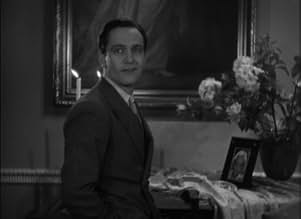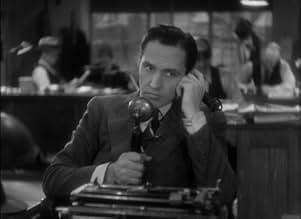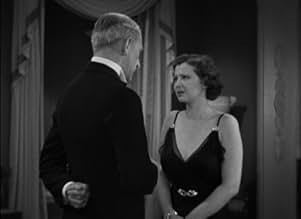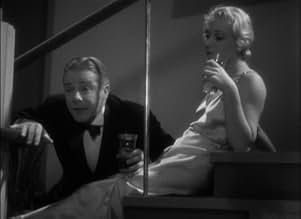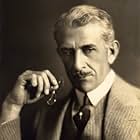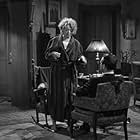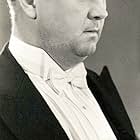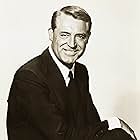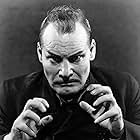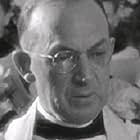A drunken newspaperman is rescued from his alcoholic haze by an heiress whose love sobers him up and encourages him to write a play, but he lapses back into dipsomania.A drunken newspaperman is rescued from his alcoholic haze by an heiress whose love sobers him up and encourages him to write a play, but he lapses back into dipsomania.A drunken newspaperman is rescued from his alcoholic haze by an heiress whose love sobers him up and encourages him to write a play, but he lapses back into dipsomania.
Richard 'Skeets' Gallagher
- Buck
- (as Skeets Gallagher)
Ernie Adams
- Reporter
- (uncredited)
Mildred Boyd
- June
- (uncredited)
Edna Callahan
- Bridesmaid
- (uncredited)
Leonard Carey
- Prentice's Butler
- (uncredited)
Harry Cording
- Fred
- (uncredited)
Milla Davenport
- Prentice's Housekeeper
- (uncredited)
- Director
- Writers
- All cast & crew
- Production, box office & more at IMDbPro
Storyline
Did you know
- TriviaThe word "Hell" could not be used in the UK as part of a title, so the UK version was simply retitled "Merrily We Go to ____".
- Quotes
Vi: Here's something to clean up the floor.
[hands a hand towel to Jerry]
Buck: Is there anything I can do Joan?
Jerry Corbett: Yeah, you can clean up the floor.
- ConnectionsFeatured in Women Make Film: A New Road Movie Through Cinema (2018)
Featured review
Not a happy picture but a very satisfying and wonderfully made one.
Although this story has been done a million times since, Dorothy Arzner's subtle yet brash film still has something different to say which makes this worth watching.
Being not just that rarest of 1930s Hollywood creatures: a woman film maker but also someone in an openly long term same sex relationship I wonder whether she had to try harder than her male contemporaries? She certainly delivers goods with this, imbuing energy and emotion into this very thoughtful drama. It's not just a simple story about alcoholism as it could easily have been considering this is 1932. It is a surprisingly deep examination of a strained and complex relationship which is particularly insightful for the time. Above all though it is a piece of entertainment. Unlike how this subject might be handled today, it doesn't get too bogged down in depressing misery but instead keeps the story moving forward, keeping your eyes glued to the screen with a really fast pace.
It's not just Ms Arzner's energetic yet thought provoking direction which elevates this above a lot of the output from 1932, it's Frederick March. Sylvia Sidney is fine in this (not as good as she was in CITY STREETS, Rouben Mamoulian's masterpiece made a year earlier) but she and the rest of the cast are just not on the same level as Mr March. His characterisation of someone who knows he could have everything yet also someone who knows he is going to destroy not just his own but his wife's life too and someone who knows he can't do anything to stop himself is incredibly natural, authentic and heartbreaking. He achieves this, even when he's being decidedly horrible by being so endearing and likeable. Of all the actors the 30s, he was one who had real depth and demonstrates this fully here making his character both fun and sad, ambitious yet weak and spineless, devoted yet deceitful... a real person.
Despite my gushing praise for this, or maybe because of it, I can't call this a great film. Because it's good I can't just compare it with other films of that era but have to put it in the same category of all pictures from the last hundred years. It's no MIDNIGHT COWBOY or TRAIN SPOTTING thus my fairly low rating... but as films from 1932 go, it's one of the best.
Being not just that rarest of 1930s Hollywood creatures: a woman film maker but also someone in an openly long term same sex relationship I wonder whether she had to try harder than her male contemporaries? She certainly delivers goods with this, imbuing energy and emotion into this very thoughtful drama. It's not just a simple story about alcoholism as it could easily have been considering this is 1932. It is a surprisingly deep examination of a strained and complex relationship which is particularly insightful for the time. Above all though it is a piece of entertainment. Unlike how this subject might be handled today, it doesn't get too bogged down in depressing misery but instead keeps the story moving forward, keeping your eyes glued to the screen with a really fast pace.
It's not just Ms Arzner's energetic yet thought provoking direction which elevates this above a lot of the output from 1932, it's Frederick March. Sylvia Sidney is fine in this (not as good as she was in CITY STREETS, Rouben Mamoulian's masterpiece made a year earlier) but she and the rest of the cast are just not on the same level as Mr March. His characterisation of someone who knows he could have everything yet also someone who knows he is going to destroy not just his own but his wife's life too and someone who knows he can't do anything to stop himself is incredibly natural, authentic and heartbreaking. He achieves this, even when he's being decidedly horrible by being so endearing and likeable. Of all the actors the 30s, he was one who had real depth and demonstrates this fully here making his character both fun and sad, ambitious yet weak and spineless, devoted yet deceitful... a real person.
Despite my gushing praise for this, or maybe because of it, I can't call this a great film. Because it's good I can't just compare it with other films of that era but have to put it in the same category of all pictures from the last hundred years. It's no MIDNIGHT COWBOY or TRAIN SPOTTING thus my fairly low rating... but as films from 1932 go, it's one of the best.
- 1930s_Time_Machine
- Apr 15, 2023
- Permalink
- How long is Merrily We Go to Hell?Powered by Alexa
Details
- Runtime1 hour 23 minutes
- Color
- Aspect ratio
- 1.37 : 1
Contribute to this page
Suggest an edit or add missing content


